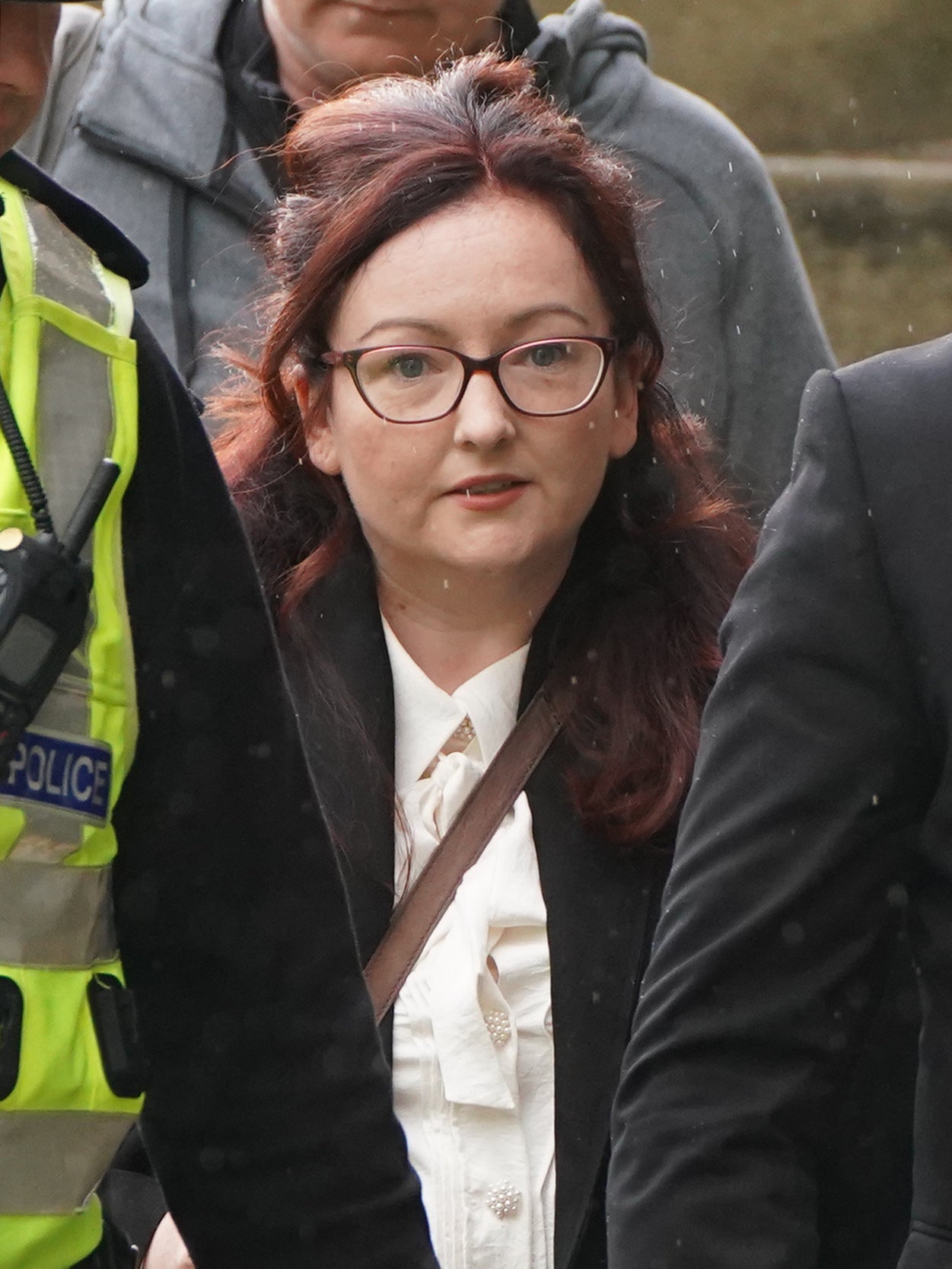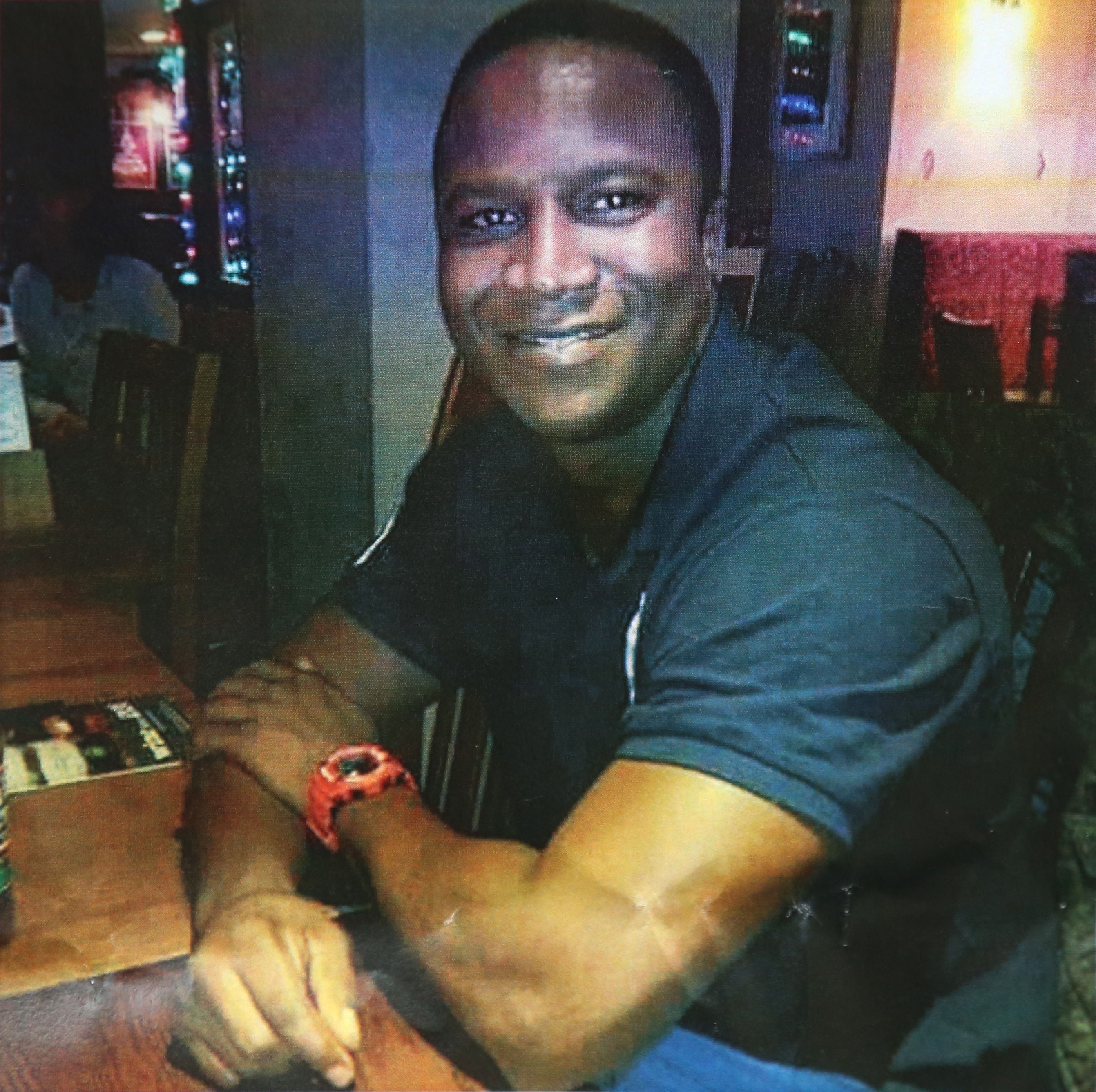
A police officer who was allegedly stamped on by Sheku Bayoh when attempting to restrain him had no obvious major injuries to her body when medically examined, two doctors have said.
Dr Katherine Mitchell, 42, was the first medical professional to check over Pc Nicole Short minutes after she was involved in a confrontation with Mr Bayoh, who died after being held by police in Kirkcaldy, Fife, on May 3 2015.
Officers had been called to the town’s Hayfield Road after the 31-year-old had been seen carrying a knife.
Previous evidence at the public inquiry investigating Mr Bayoh’s death heard Pc Ashley Tomlinson, who was also at the scene, said he saw Mr Bayoh punch Pc Short in the back of the head before “stomping” on her back so hard he thought she was dead.
But Dr Mitchell, a specialist in accident and emergency (A&E), referred to her notes from examining the officer at the time which said Pc Short had “no obvious injury on her chest and she had no chest pain”, which included the back area, the inquiry heard.

Dr Mitchell had also noted Pc Short’s Glasgow Coma Scale (GCS) score – a method used for assessing the level of consciousness – as 15/15 at the time of being examined, which she clarified means a patient is alert and oriented, their eyes are open, their speech is not confused and they are able to follow instructions.
Speaking to the inquiry, held at Capital House in Edinburgh, Dr Mitchell, referring to her notes, said the officer had no sign of a serious head injury, adding: “She was able to describe what had happened prior to the event, the fact she had been chased and that she remembered the fall itself, and she remembered putting her arms out to save herself and then that she curled up in a ball and was then lifted by one of her colleagues.
“If she had been hazy in her recollection, it’s likely I would have written that down.
“If there was a bit that she couldn’t remember, that would have been clinically significant so it’s likely I would have written it down.”
Her notes displayed at the inquiry said Pc Short showed no sign of cranial nerve deficits, no double vision, no blood in the ears and no c-spine tenderness.
Dr Gillian Norrie, 50, a forensic medical examiner, also examined Pc Short at 3.45pm on the day of the incident – about eight hours after her confrontation with Mr Bayoh.
In her medical notes, Dr Norrie said she had been told the officer had been “stamped on”, information which she believes came from Pc Short herself.
Senior counsel to the inquiry Angela Grahame QC put it to the witness that “there was no note of injury to her back, so does that mean you didn’t see or find an injury to her back?”
Dr Norrie replied: “Yes.”

Ms Grahame then asked: “Had you found any injury, bruising, marks, discomfort, tenderness, is that something you would have noted?”
Dr Norrie replied: “Yes.”
She said there were no obvious injuries at the time she saw Pc Short, but told the inquiry: “That’s not to say she couldn’t go on to develop bruises.
“I didn’t have clinical concern at the time, but things can evolve.”
Ms Grahame asked Dr Norrie that if she had any concerns about Pc Short’s health, would she have sent her back to A&E. The witness replied: “Absolutely.”
When asked about Pc Short’s neurological status at the time of examination, Dr Norrie said: “If she was presenting after being hit in the head in a way that gave concern behaviourally, if she was irritable or inappropriate, drowsy, things like that would obviously prompt me more to look at the GCS, but her GCS was 15/15, so there was no concern about her neurological status.”
The inquiry, before Lord Bracadale, continues.







